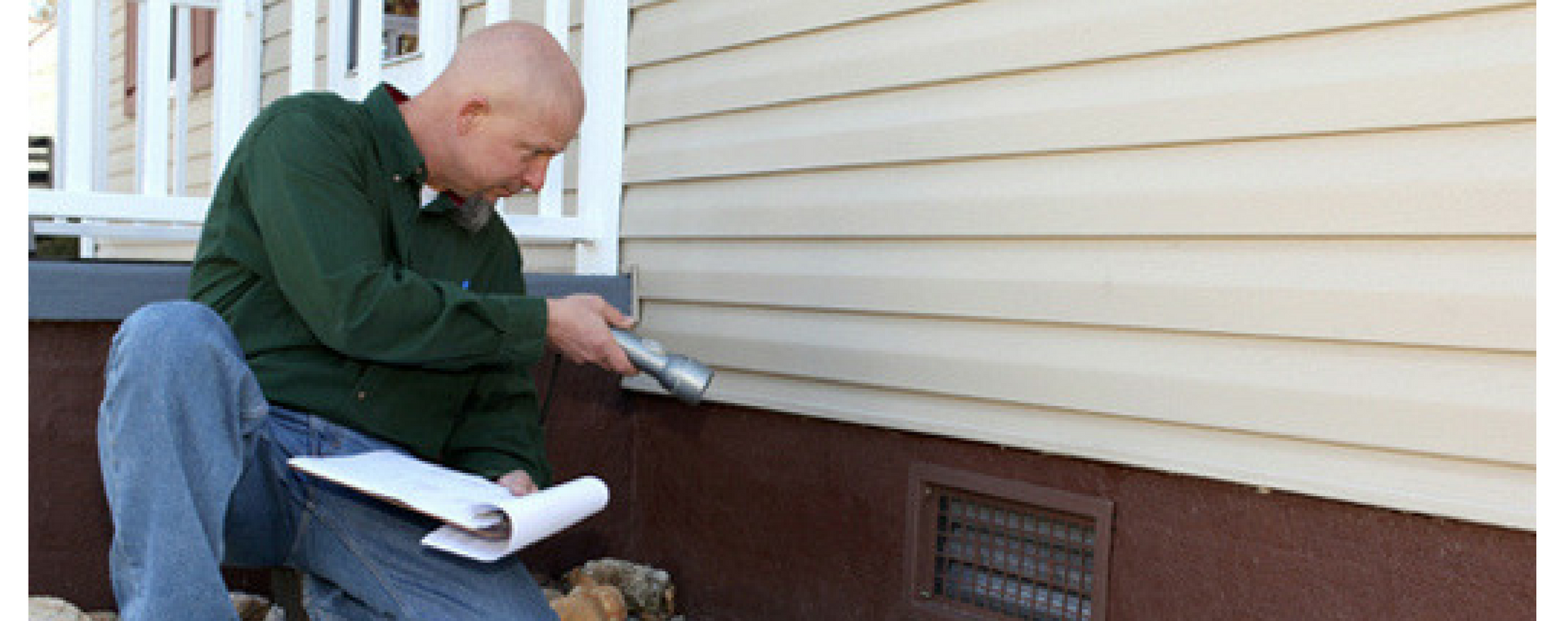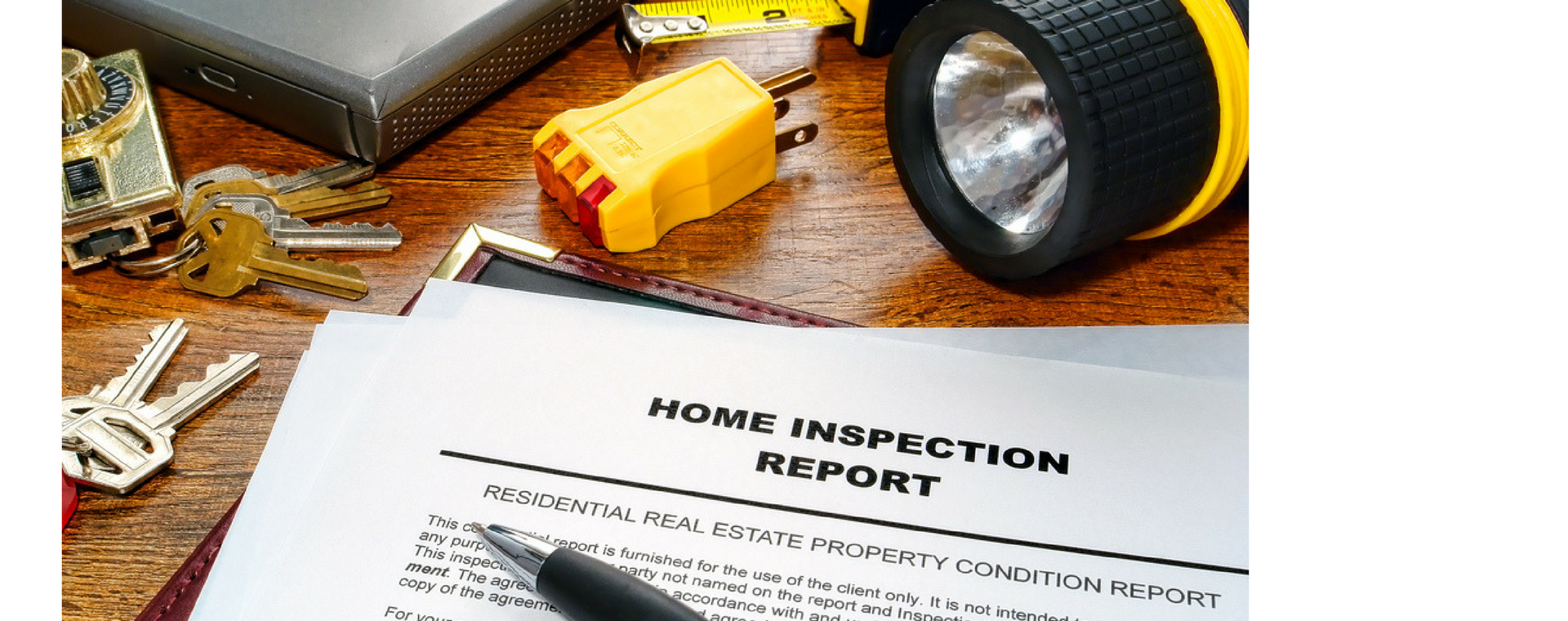Buying a Home - the Inspection Contingency
The first step after having an accepted offer on a home is to have an inspection. Very few offers don't have inspection contingencies on them - the only time an offer may not have an inspection contingency is if you are in a competing offer situation and you have had an 'informal' inspection prior to making an offer, or if you are in the business of developing/building homes and know what you are seeing, or the home is going to be a 'tear down' and you have no concern over the 'soundness' of the home. Most inspection contingencies are time for 7-10 days from offer date. This timing allows you to select an inspector, get on their schedule, have the inspection and then decide what requests you are going to make of the sellers.
A few notes on Home Inspections first
You should keep in mind that most of the housing stock we have in Greater Boston and surrounding communities is USED. The purpose of a home inspection is to inform a buyer about what he or she is buying, not to renegotiate the sale price of a home. No home is perfect no matter how well maintained. It is the job of all home inspectors to highlight maintenance issues, look for pests and insects, point out needed repairs, assess structural condition and scrutinize major systems like plumbing, electric, heat and roof. Every home inspection, even in the best maintained home, turns up multiple issues. Commonly we find that a chimney or wall needs re-pointing, that fireplaces aren't lined (new building codes require linings - however old fireplaces are often triple bricked which may in fact be a better, but more expensive way to build a chimney than today's current code requires). It is not uncommon for some electrical wire to be loose or not properly boxed or for homes to have knob & tube wiring. Expect to have to upgrade electrical service; today's buyers have needs for computers and equipment that many sellers never faced. We see that ropes in windows are broken, that older kitchens and baths do not have GFI outlets and that lots of physical things that currently exist do not meet updated building codes. The older housing stock has older waste pipes, water services, heating systems, roofs, exterior shingles and gutters, fascia boards and plumbing. It is typical for roofs to be installed without vents, and insulation not to be in keeping with your homes inspector's recommendations. Powder Post beetles and termites have left their damage scars in virtually all basements in older homes - one inspector comments that there are 2 types of homes in Massachusetts 1) homes that have had termites, and 2) homes that will have termites in the future; so be aware that this 'normal' and often sellers have no idea. As a buyer you should be making an offer that budgets for having to address some of the issues an inspector finds during an inspection.
Finding an Inspector
Firstly, you need to choose an inspector. If you are using a buyers agent, then your buyers agent can recommend inspectors to you. If you are buying through the listing agent (the agent whose sign is at the property) then legally the agent cannot recommend an inspector to you. Sometimes colleagues at work will recommend an inspector to you. More often than not, you are better using the recommendation from your buyers agent. Buyers agents use inspectors all the time, colleagues don't. If an inspector is not good, then the agent won't recommend them again. Because of an agents frequent recommendations, an inspector will endeavor to do their best work and ensure they catch everything for the clients, because they want the ongoing business from the agent. A recommendation from a colleague who used the inspector 3 years ago, means that there really is no follow-on business for that inspector with that inspection so they tend to be not as careful and dismissive. I need to qualify this, this is not true 100% of the time, but it does happen. I once was at an inspection and my buyer had used an inspector who was recommended by one of their work colleagues - almost immediately it was obvious that this inspector was not good. My buyers, who were first time home buyers, asked whether he would have a look at the shed on the property (which was only 10 feet from the house) and the inspectors response was 'no'. He was a 'home' inspector, that was a shed, and they needed to get a 'shed' inspector to look at it. Seriously. Another inspector, a similar recommendation from my clients work colleague, spent time at the home inspection explaining to the buyers that Capes, with dormers, were inherently structurally unsound. Seriously.
During the inspection
An inspector spends time walking around the house with you, explaining everything he/she sees - whether it be good or bad. A good inspector will explain the maintenance aspects of the home moving forward, tell you what are not issues now but could become issues and what to look for to prevent those issues, and also the positives of a home. You learn an awful lot about the home during an inspection so its important to be present during the inspection if you can. Most inspectors prepare written reports that can be emailed/posted/given to you that detail everything that was found during the inspection so that you can spend time afterward reviewing the notes and 'mulling' the inspection.
I often explain the inspector as being a little like a triage nurse. He/she look for evidence of bigger issues, and if that evidence exists, then we get a specialist in to inspect further. For example, most general home inspectors look for evidence of pests whether they be mice, ants, termites etc. If evidence is found then they will recommend getting a professional in to investigate further, who will provide a quote for remediation and treatment.
Radon
Often tested at the same time of an inspection are Radon levels in the basement. Radon is a carcinogenic, radioactive, odorless gas that the EPA recommend mitigating at levels of 4 pico-curies per liter, or pCi/L or higher. Radon comes from the natural (radioactive) breakdown of uranium in soil, rock and water and gets into the air you breathe - because you spend so much of your time at home, then your greatest potential exposure is at home. There are two types of tests commonly used around the time of the home inspection. Active or passive. Active testing is where a computerized piece of equipment is put in the lower level of the house 2 days prior to the inspection. Over the next 2 days it takes hourly 'polls' and records the radon level, the barometric pressure, the temperature, the humidity and whether the unit has been moved during this time. At the end of the time, a printer is hooked up to the equipment and a printout of every hourly reading over the last 48 hours is produced along with the average radon level found. The passive test is 2 tubes that are placed in the lower level and then 2 days later are collected, put in the mail to a laboratory, and then a few days later you get the average radon results for the 2 day period. If the radon levels come back high, generally, the seller will agree to have a mitigation system installed prior to closing, or will credit the buyers with a monetary amount to help the buyers with the cost of installing the mitigation system.
3 Possible outcomes
There are 3 possible outcomes to an inspection.
- You are concerned about everything the inspector found, and you don't want to move forward on the home any longer. You can exit the contract and get your deposit back, provided that you have exited the contract before the inspection contingency date. The only money 'out of pocket' at this point is the inspection fee.
- The inspector found very little in the way of issues around the home and you move forward with the purchase without requesting anything of the sellers.
- The inspector found some issues with the home. Two courses of action are then possible:
- The seller agrees to repair/replace/address some issues prior to closing. Let's say that the inspector found that the furnace had not been serviced in the last 10 years, then we may ask the sellers to service the furnace prior to closing. We are asking them to do something to the home before you take ownership. Anything that requires a licensed tradesman to take care of requires that the sellers provide receipts at closing to show that the work has been done.
- The seller agrees to credit you some money at closing to take care of an issue found at closing. Let's say that the inspector finds that the furnace is on its last legs and he/she doesn't believe that the furnace will last the next winter, then we may ask the sellers to credit us a portion of money toward replacing the furnace when you have purchased the home.
After the inspection
Once the inspection is complete, now comes the negotiation over the results of the inspection. So long as the inspection response is received by the sellers, or listing agent, by the date of the inspection contingency then negotiations can occur over the next few days until the Purchase and Sale date.
A house, generally, will not inspect 'cleanly' - there will always be items found during a home inspection. The best result for the buyer is to get the most items addressed, by the seller. In order to do this, I advise 'reasonableness'. If a buyer is reasonable with their requests to a seller as a result of the inspection, then 75% of the time, the seller will be reasonable in return. In almost 100% of occasions if a buyer asks the seller to fix everything, or request an inflated credit to take care of the items, then the seller will say no to everything and will not negotiate. Don't expect the seller to want to negotiate on items that were visible to the eye: tree roots uprooting a sidewalk, tree limbs or trees to close to the house, cracked tile in the bathroom or cracked windows, rotting bulkhead doors, gutters that are broken or disconnected, etc. Sellers expect that the buyers will have carefully viewed the home prior to making an offer, and that problems that are in plain sight have been taken into consideration when you made the offer. Once the seller and buyer have agreed over what is going to happen as a result of the inspection, then the agreed items are incorporated into the Purchase and Sale agreement.
The purpose of the home inspection is not to compensate the buyer for the perfect house, but to make the buyer aware of the items they will need to address when they buy the home.
If you have any questions about anything raised here then please don't hesitate to reach out to any one of the team. We would be more than happy to help.






